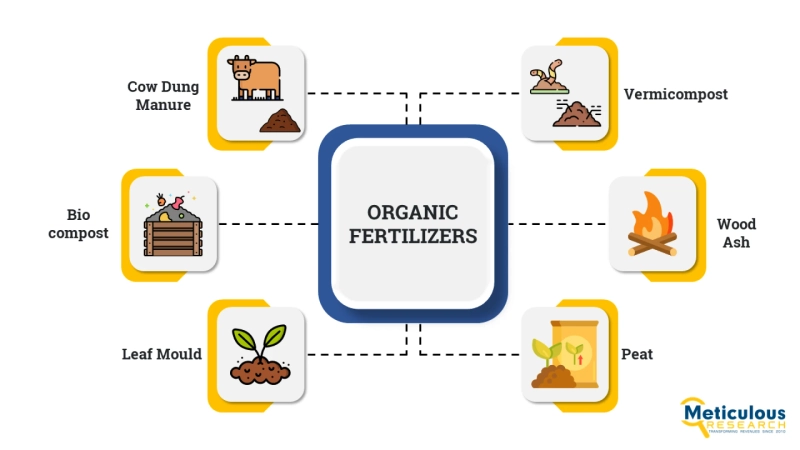The modernization of agriculture along with the “𝐆𝐫𝐞𝐞𝐧 𝐑𝐞𝐯𝐨𝐥𝐮𝐭𝐢𝐨𝐧” transforms the agriculture practices in a new dimension where the traditional knowledge and techniques were replaced by the new technology to increase the productivity to feed the growing population.
𝑬𝒙𝒑𝒍𝒐𝒓𝒆 𝑴𝒐𝒓𝒆 𝑯𝒆𝒓𝒆: https://www.meticulousresearch.com/download-sample-report/cp_id=5135
This green revolution changed the country status from importer to self-sufficient. Traditional source of nutrients was replaced by the synthetic and chemical fertilizer. Undoubtedly the inorganic fertilizers are keys behind the increasing productivity to a greater scale. However, inappropriate use of these chemical/synthetic fertilizers, unscientific management, over-utilization, etc. lead to soil and environmental pollution as well as deterioration of the soil quality.
To reduce or minimize these ill effects, it is high time to 𝐬𝐡𝐢𝐟𝐭 𝐭𝐡𝐞 𝐚𝐠𝐫𝐢𝐜𝐮𝐥𝐭𝐮𝐫𝐞 𝐬𝐲𝐬𝐭𝐞𝐦 𝐟𝐫𝐨𝐦 𝐢𝐧𝐨𝐫𝐠𝐚𝐧𝐢𝐜 𝐭𝐨 𝐨𝐫𝐠𝐚𝐧𝐢𝐜 𝐦𝐨𝐝𝐞 𝐭𝐨 𝐬𝐮𝐬𝐭𝐚𝐢𝐧 𝐭𝐡𝐞 𝐬𝐨𝐢𝐥 𝐚𝐧𝐝 𝐞𝐧𝐯𝐢𝐫𝐨𝐧𝐦𝐞𝐧𝐭𝐬 for a longer period. Side by side, the use of chemical fertilizers should be minimized
𝐃𝐫𝐢𝐯𝐞𝐫𝐬
1. Increasing Demand for Organic Foods
2. Growing Concerns Regarding Environmental Safety
3. Advances In Organic Fertilizer Manufacturing Processes
4. High Availability of Organic Waste
Key Players
HELLO NATURE® Karnataka Agro Chemicals, Bangalore Coromandel International Limited Midwestern BioAg Perfect Blends California Organic Fertilizers, Inc. BIOLCHIM S.p.A. National Fertilizers Limited SPIC FERTOZ LIMITED Sustane Natural Fertilizer, Inc. FERTIKAL
𝑶𝒖𝒓 𝑻𝒓𝒆𝒏𝒅𝒊𝒏𝒈 𝑩𝒍𝒐𝒈 : https://lnkd.in/dWS69tV4
0


